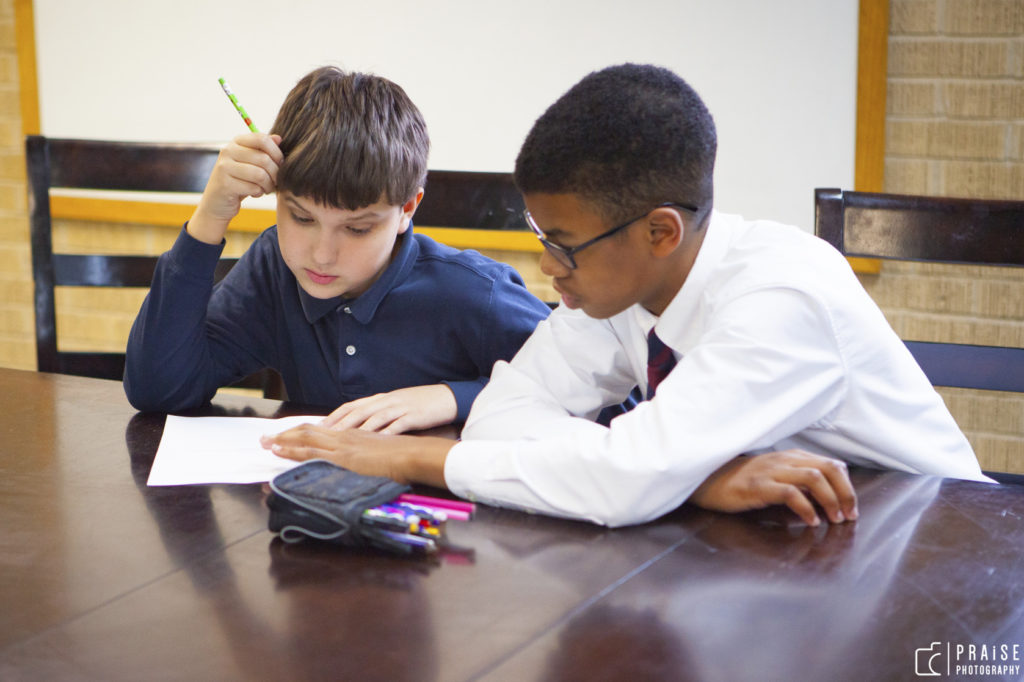 The promotion of STEM — science, technology, engineering and mathematics — majors has been presented for the past decade as a means of keeping the United States competitive in a global economy, but in many circles, it has come hand-in-hand with a devaluing of the humanities. STEM majors are praised for choosing worthwhile careers, while English majors are promised a jobless future. As with many things, the reality is not that black and white, as Dr. Loretta Jackson-Hayes makes clear in her recent Washington Post article. She argues that the best STEM work is shaped by insights that can be found in a study of the humanities.
The promotion of STEM — science, technology, engineering and mathematics — majors has been presented for the past decade as a means of keeping the United States competitive in a global economy, but in many circles, it has come hand-in-hand with a devaluing of the humanities. STEM majors are praised for choosing worthwhile careers, while English majors are promised a jobless future. As with many things, the reality is not that black and white, as Dr. Loretta Jackson-Hayes makes clear in her recent Washington Post article. She argues that the best STEM work is shaped by insights that can be found in a study of the humanities.
A chemistry professor at a liberal arts college, Dr. Jackson-Hayes cites many examples, both artists and scientists, whose work was notably enhanced by an education which included the humanities as well as arts and science.
Our society does need an influx of great scientists and mathematicians. Advances in science and technology are at the root of innovations which make our work more productive, help us provide resources to the people who need them most, and aid in the fight against sin and death in this world.
What is false is the idea that science and technology in isolation can solve problems. The most brilliant mathematician contributes little to her field if she works without an understanding of the world around her or the ability to communicate her work to others. Additionally, as Dr. Jackson-Hayes notes, her work is enriched by the ability to draw from multiple disciplines as opposed to a limited, math-only perspective: “…if American STEM grads are going to lead the world in innovation, then their science education cannot be divorced from the liberal arts.”
 As the liberal arts have become less valued, STEM graduates have become increasingly one dimensional. They can carry out an experiment, solve isolated problems, or design a solution, but they lack the creativity and critical thinking to make their work truly innovative and meaningful. In every career and walk of life, cultural understanding, logic, and communication skills create opportunities to share your perspective and develop your work further.
As the liberal arts have become less valued, STEM graduates have become increasingly one dimensional. They can carry out an experiment, solve isolated problems, or design a solution, but they lack the creativity and critical thinking to make their work truly innovative and meaningful. In every career and walk of life, cultural understanding, logic, and communication skills create opportunities to share your perspective and develop your work further.
Classical Christian education seeks to nurture well-rounded students as image-bearers of God called to care for the world and be ambassadors for Christ. Providence students approach their chosen disciplines, STEM or otherwise, against a background of great literature, world history, and carefully developed language skills. They are encouraged to work hard in every area by teachers who understand the importance of their respective disciplines for all people, not just the star pupil.
Rather than merely preparing our students for careers, our goal as a school is to produce thoughtful, grounded graduates who are equipped to be life-long learners and who can apply lessons across disciplines whatever their chosen fields.
Stephanie Sipes, Providence 6th-7th grade math teacher

